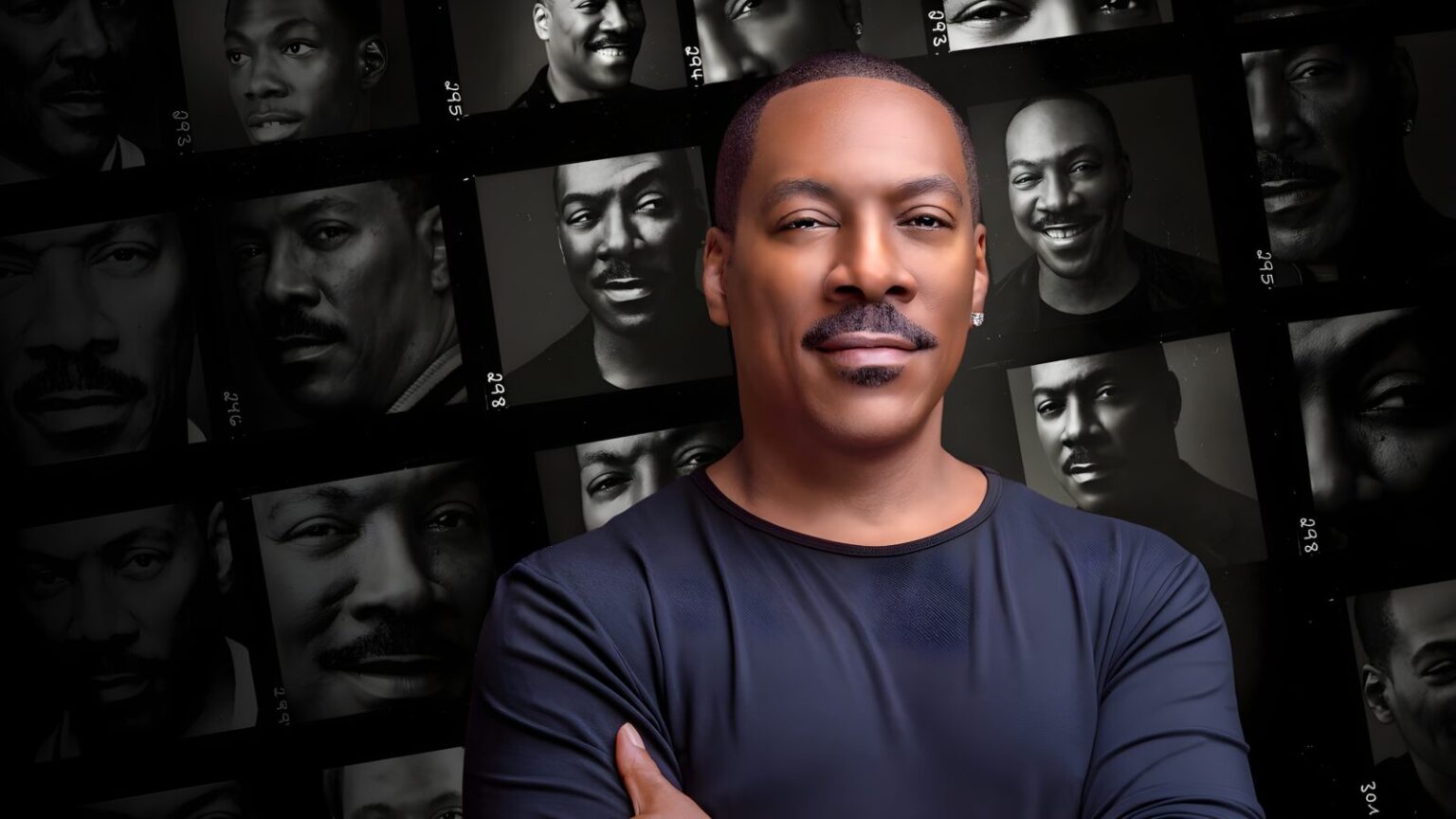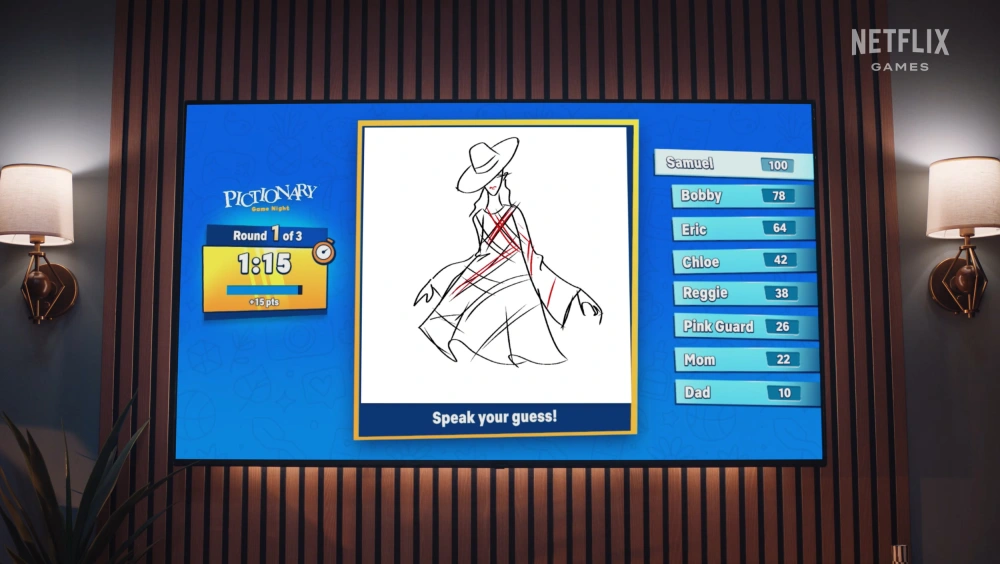TL;DR: Being Eddie is a glossy, respectful, and often entertaining documentary that celebrates Eddie Murphy’s legacy without ever digging beneath it. With jaw-dropping access but frustratingly little insight, it’s the cinematic equivalent of a greatest-hits album — fun to revisit, but lacking the raw energy of something truly new.
Being Eddie
There’s something cosmic about seeing Eddie Murphy, the once and future king of comedy, wandering through his gothic Beverly Hills mansion while a camera crew fawns over him like he’s Dracula with a SAG card. Being Eddie, Netflix’s new documentary about the legendary comedian and actor, promises to peel back the curtain on one of the most fascinating figures in entertainment history. Instead, it gives us the curtain, the stage, and the fog machine — but not much of the man behind the microphone.
It’s reverential, sure. But like a kid quoting Raw without ever having seen Delirious, it gets the highlights right while missing the soul.
Let’s be clear: this documentary has access most filmmakers would sell their soul to a Beverly Hills Cop for. We get Eddie himself, lounging in a palatial estate complete with a retractable roof (because of course he has a retractable roof), and a highlight reel that reminds us he’s been famous for longer than many of us have been alive. From SNL to Shrek, from Beverly Hills Cop to Dreamgirls, Murphy’s four-decade career is the kind of pop-cultural run that makes other comedians look like they’re still doing open mics in Toledo.
Director Angus Wall — yes, the Angus Wall, the Oscar-winning editor behind The Social Network and The Girl with the Dragon Tattoo — gives the film a slick, cinematic sheen. Every frame gleams like a Netflix investor deck: expensive, polished, prestige-ready. But for all that polish, Being Eddie feels oddly surface-level, like it’s afraid to scuff the legend.
Early on, we see Murphy admitting that he spends his nights watching Ridiculousness on MTV — which he calls “the funniest show on TV.” That’s a wild confession from a man who once set the gold standard for standup comedy. But instead of probing that disconnect — the titan who revolutionized comedy now getting his kicks from viral fail clips — the doc just lets the moment drift by. It’s like watching Tony Stark say he gets most of his engineering inspiration from TikTok, and nobody asking a follow-up.
Wall clearly adores Murphy. Maybe too much. The film opens with a parade of famous faces — Dave Chappelle, Chris Rock, Jerry Seinfeld — singing his praises like he’s the comedy messiah. They’re not wrong. But hearing a trio of aging comedy gods wax nostalgic about how Eddie “changed the game” feels like the Netflix version of an awards show montage: self-congratulatory, insular, and just a little out of touch.
There’s a certain irony here. These are comics who’ve all, in recent years, been criticized for punching down — yet they’re lionizing Murphy, a man who once embodied youthful rebellion and boundary-pushing wit. It’s as if they’re trying to reclaim some of his glow by proximity.
Meanwhile, the real meat of Eddie’s story — his upbringing on Long Island, the trauma of losing his father, the whiplash of fame at 19 — flashes by in montages. Murphy opens up about his obsessive-compulsive tendencies and his deep-seated aversion to funerals, tracing it to the deaths of his parents and brother Charlie. It’s some of the most revealing stuff in the film. But just as it gets interesting, Wall moves on. There’s no confrontation, no challenge, no sense of emotional consequence. It’s like therapy with a hype man.
For a doc with “Being” in the title, there’s a lot of avoiding being here. The omissions are glaring. No mention of the infamous 1997 incident involving a trans sex worker in his car. No real discussion of his tabloid-fodder relationships or his messy media marriage to Tracey Edmonds. Even his brief estrangement from daughter Angel (with Spice Girl Mel B) gets buried under the weight of more flattering anecdotes.
This selective storytelling makes Being Eddie feel less like a documentary and more like a Netflix press kit with better lighting. It’s not that Murphy’s private life needs to be dissected for shock value — but when you’re making a film about one of the most public figures in entertainment, ignoring the public controversies feels dishonest.
What’s especially strange is that the documentary does have moments where Murphy edges toward self-awareness. He admits that he can’t quite separate Eddie the performer from Eddie the man, that fame rewired his brain. But just as you lean in, hoping for that Raw-level vulnerability, he pivots to a safer subject — usually Shrek. And yeah, Donkey is iconic, but we’ve heard that story before.
Let’s be real: Being Eddie exists as much to justify Eddie Murphy’s $70 million Netflix deal as it does to tell his story. It’s a glossy reminder that Murphy still has the charisma, comedic timing, and pop culture currency to matter — even if he’s been largely off the standup stage for nearly four decades.
There’s even a moment where the filmmakers gift Murphy ventriloquist dolls modeled after Richard Pryor and Bill Cosby — a surreal, almost poetic gesture meant to tease his long-rumored return to standup. Murphy jokes about how his next special would play out, riffing with the dolls, but the moment feels hollow. It’s a symbol of what Being Eddie keeps doing: promising something profound, then stopping short.
By the time the credits roll, you realize this entire film is Netflix softly whispering, “Come on, Eddie… just one more special.”
To its credit, Being Eddie captures the scale of Murphy’s influence. The archival footage is gold. Seeing early SNLsketches, the making of Harlem Nights, and behind-the-scenes bits from The Nutty Professor remind us how ridiculously talented he is — not just as a performer but as a world-builder.
Murphy’s ability to embody multiple characters, often in the same frame, wasn’t just a gimmick — it was cinematic engineering decades ahead of its time. Wall smartly highlights how Universal originally doubted his capacity to play the entire Klump family, forcing him to audition for each role. That’s bonkers, but it perfectly illustrates Murphy’s drive to prove he could do it all — and then some.
It’s moments like these where the documentary briefly catches fire, where you remember why Eddie Murphy is Eddie freaking Murphy. But those sparks never quite ignite into a full flame.
Final thoughts: Being Eddie, but not knowing Eddie
In the end, Being Eddie is as fascinating for what it includes as for what it dodges. It’s a reverent portrait of a man who changed comedy, film, and culture — but it never risks making him uncomfortable. For fans, it’s catnip. For the uninitiated, it’s a beautifully shot Wikipedia entry.
Netflix clearly wants this to be a victory lap. What it really needs is a comeback tour.






